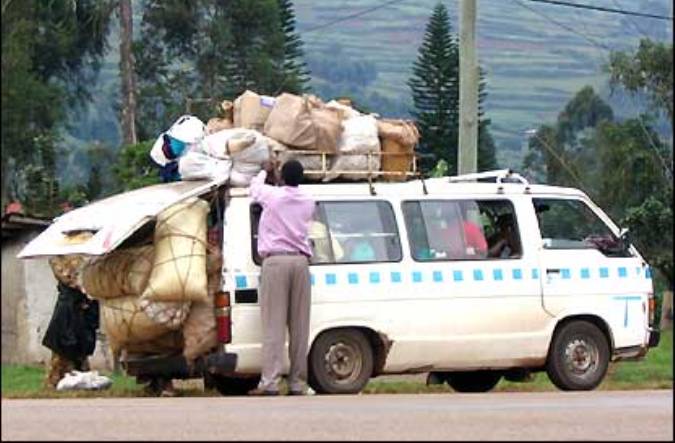The deteriorating condition of taxis in Kalangala has raised serious concerns as they increasingly become hazardous and pose risks to passengers.
Unlike in Kampala and several parts of the country where Toyota Hiace mini buses, coasters and buses are used to transport passengers, in Kalagala, saloon cars are used and loaded with more than 12 passengers with more than eight bags of silver fish, shop merchandise.
The state of taxis operating in Kalangala has reached a critical point, turning them into potential death traps. This alarming situation jeopardizes the safety and well-being of passengers who rely on these vehicles for transportation.
The authorities and relevant stakeholders must urgently address the underlying issues contributing to the perilous state of taxis in Kalangala.
It is imperative to implement stringent measures to ensure that these vehicles meet safety standards and provide a secure mode of transportation for passengers.
One of the key areas that require immediate attention is the regular inspection and maintenance of taxis.
Establishing and enforcing a comprehensive inspection regime will help identify and rectify mechanical faults, ensuring that taxis are roadworthy and free from potential hazards.
Additionally, it is crucial to address issues related to overloading and reckless driving, which further exacerbate the risks associated with taxis in Kalangala.
Strict enforcement of traffic regulations, including passenger capacity limits, speed limits, and driver behavior, is essential to mitigate the dangers faced by commuters.
Collaboration between transport authorities, taxi operators, and relevant associations is vital in finding long-term solutions.
This partnership can facilitate the establishment of regulations, guidelines, and training programs aimed at improving driver competence, vehicle maintenance, and passenger safety awareness.
Public awareness campaigns play a significant role in educating both passengers and taxi operators about their rights and responsibilities.
Informing passengers about safety precautions, such as wearing seat belts and reporting any concerns about vehicle conditions or driver behavior, empowers them to actively contribute to their own safety.
Furthermore, investment in infrastructure and road maintenance is crucial to ensure safer commuting experiences.
Well-maintained roads, proper signage, and adequate lighting contribute significantly to reducing accidents and improving overall road safety in Kalangala.
Urgent action is needed to address the deteriorating state of taxis in Kalangala. By implementing stringent measures, regular inspections, and promoting responsible driving practices, the safety of passengers can be significantly improved.
Collaboration among authorities, taxi operators, and the public is essential to create a safer transportation environment in Kalangala, safeguarding the well-being of all commuters.


